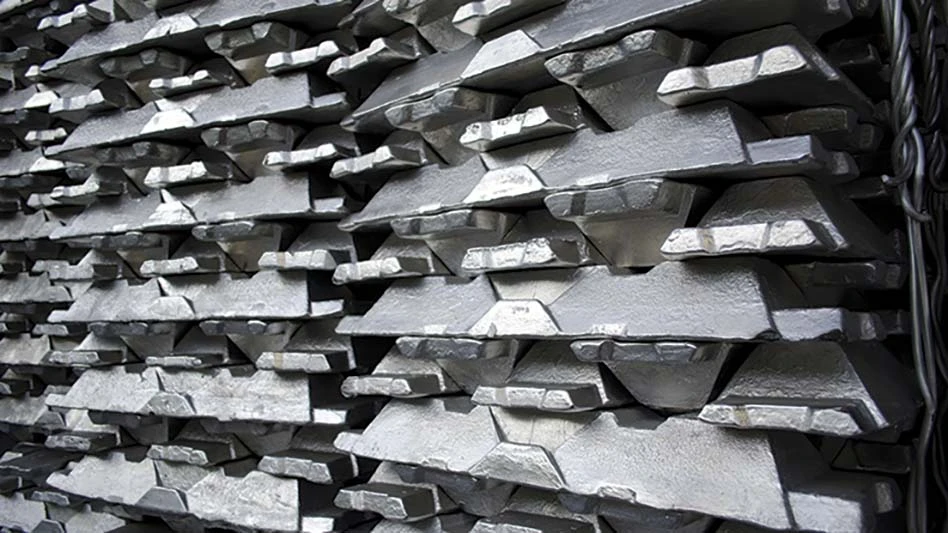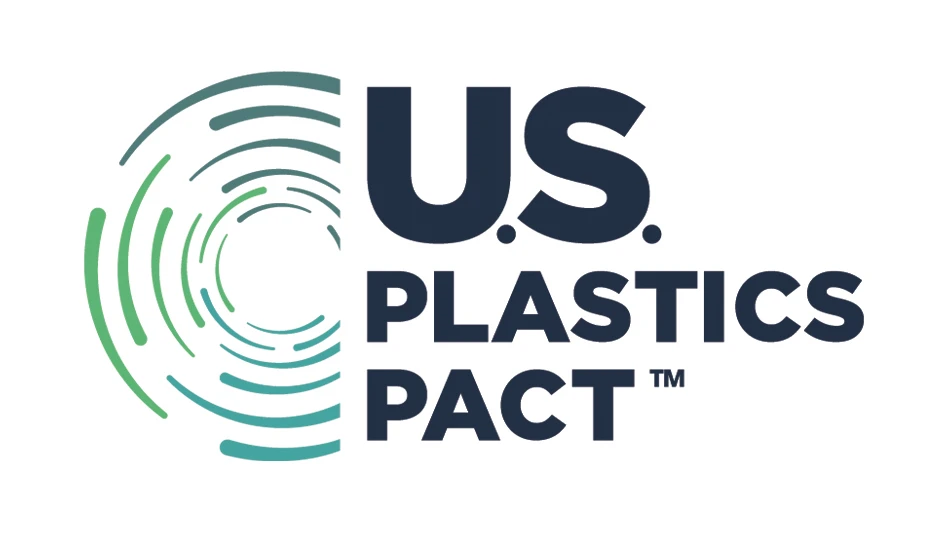The debate continues to ferment over the merits and legality of the proposed Responsible Electronics Recycling Act (RERA, H.R. 2284/S. 1270). A number of electronics recyclers, industry groups and environmental organizations have come out in support of the legislation, while the Institute of Scrap Recycling Industries Inc. (ISRI), the Washington, D.C.-based trade association representing the scrap recycling industry, has voiced its opposition to the proposed legislation.
Recently, the Congressional Research Service (CRS) released a report titled “Issues in International Trade Law: Restricting Exports of Electronic Waste,” which examines legal issues associated with restricting the export of obsolete, broken or irreparable electronic devices. Both ISRI and the Basel Action Network (BAN), the Seattle-based nonprofit organization that says its mission is “to prevent the globalization of the toxic chemical crisis,” have claimed the CRS report supports their individual and very different interpretations of the legality of the legislation in terms of existing world trade law.
The Bill
Reps. Gene Green of Texas and Mike Thompson of California introduced RERA in the House of Representatives during the 112th Congress, while Sen. Sheldon Whitehouse of Rhode Island introduced the measure to the Senate. The bill would prohibit the export of some electronics that, if improperly disposed, could create environmental, health or national security risks, according to its sponsors.
Reps. Green and Thompson first introduced the measure in 2010 during the 111th Congress as H.R. 6252; however, the bill never made it out of the House Committee on Energy and Commerce.
Just as H.R. 6252 proposed, H.R. 2284/S. 1270 would create a new section of RCRA (Resource Conservation and Recovery Act) that prohibits the export of “restricted electronic equipment” from the U.S. to developing nations. The bill lists several toxic materials, the presence of which would cause some covered equipment to be considered restricted waste. The bill calls for the Environmental Protection Agency to set de minimis levels for these toxic substances and clarifies that material streams such as plastics, metals and glass that do not contain hazardous chemicals above the de minimis levels may be exported.
The bill would allow tested and working equipment to be exported to promote reuse, along with products exported for warranty repair or because of a recall. Importing countries must give their consent to accept exempted exports under the proposed legislation. According to the bill’s sponsors, this legislative approach is consistent with the e-waste policies adopted by most other developed nations through international treaties, such as the Basel Convention and the Basel Ban Amendment.
 “E-waste is the fastest growing waste stream in the United States and it can pose a serious problem in that most e-waste contains toxic chemicals which present environmental and health concerns when not properly handled,” Green says in a press release about the introduction of the bill. “As the ranking member on the House Energy and Commerce Environment and Economy Subcommittee, I look forward to working with the majority in the House to pass this bill, which successfully addresses this growing issue. I also want to thank Sens. Sheldon Whitehouse, Sherrod Brown (Ohio) and Lisa Murkowski (Arkansas) for introducing the companion bill in the Senate.”
“E-waste is the fastest growing waste stream in the United States and it can pose a serious problem in that most e-waste contains toxic chemicals which present environmental and health concerns when not properly handled,” Green says in a press release about the introduction of the bill. “As the ranking member on the House Energy and Commerce Environment and Economy Subcommittee, I look forward to working with the majority in the House to pass this bill, which successfully addresses this growing issue. I also want to thank Sens. Sheldon Whitehouse, Sherrod Brown (Ohio) and Lisa Murkowski (Arkansas) for introducing the companion bill in the Senate.”
Thompson adds, “By carefully regulating the export of e-waste, this bipartisan legislation takes concrete steps to address a growing environmental and health crisis while creating good-paying recycling jobs here in the U.S.”
Supporters of the proposed legislation claim it would create jobs in America by removing competition from overseas recycling facilities that have few, if any, labor and environmental standards and, therefore, offer less expensive services.
Unlike the Responsible Electronics Recycling Act introduced in 2010, H.R. 2284 / S. 1270 also would create a research program at the Department of Energy to help assess the recycling and recovery of rare earth metals from electronics. This provision is designed to help ensure the proper collection and recycling of precious and strategic metals, according to the bills’ sponsors.
Voicing Support
The Coalition for American Electronics Recycling (CAER) has formed in support of the proposed legislation. On its website, www.americanerecycling.org, the group says it “represents U.S. companies that believe electronics recycling should be performed securely and sustainably, for the benefit of the American economy.” CAER adds, “We are committed to growing an American industry with the capacity to manage the volume of e-waste generated within our borders, creating good jobs and expanded trade.”
Among the members of CAER are some of the largest electronics recyclers in North America, including Sims Recycling Solutions (SRS), Waste Management, Electronic Recyclers International, Redemtech and ECS Refining. Aluminum recycler and producer Alcoa also is a member of the coalition. (The full CAER membership list is available at www.americanerecycling.org/memberlisting.html.)
Steve Skurnac, president of SRS Americas, based in Chicago, says the issue of exports is not a simple one because of the variety of competing interests.
He adds that the U.S. lags behind other developed countries in terms of its progress on electronics recycling legislation at the national level.
“The U.S. is the only developed country that doesn’t have national legislation on e-waste in general,” Skurnac says. “The E.U. (European Union) has been there for 10 years now.”
The Electronics TakeBack Coalition, which partners with BAN as well as other environmental organizations, also has voiced its support for RERA. The nonprofit’s goal is “to protect the health and well being of electronics users, workers and the communities where electronics are produced and discarded by requiring consumer electronics manufacturers and brand owners to take full responsibility for the life cycle of their products, through effective public policy requirements or enforceable agreements.”
Barbara Kyle, national coordinator of the Electronics TakeBack Coalition, says of RERA: “It certainly is influencing what’s happening in the marketplace, because it sends a signal to companies who haven’t given much thought to what happens to their old electronics. It signals that there is a high road and a low road, and no one should use recyclers who travel on the low road.”
She points to state legislation that has been passed in recent years governing the disposal and recycling of electronics, saying, “We are beginning to see a change here, where less e-waste is going into the trash and more going to recyclers.” While she says the progress is welcome, Kyle adds that many companies claim to be recyclers but are exporting a majority of the material they receive. “So the most important thing that the federal government can do now is to fix that part of the problem—to stop allowing these brokers to dump toxic e-waste on these countries and exporting jobs in the process.”
She adds, “The states can’t legislate on this—it is not their constitutional right. Only Congress can fix this.”
Skurnac says electronics recycling “is something that Washington should be thinking about,” adding that the issues surrounding electronics recycling need special attention that they haven’t received in the past at the federal level.
CAER members have been working to educate members of Congress on the proposed legislation in an effort to gain additional sponsors for the bill, he says. Most members of Congress are not aware of the issues surrounding electronics recycling, Skurnac says, adding that most legislators who have been approached have receptive to discussions with members of CAER. However, he acknowledges that the focus in Washington currently is less on specific legislation and more on the election cycle itself, which makes it unlikely the bill will progress further in this term.
However, with so many politicians talking about the need to create jobs, RERA could find more support in Congress and be reintroduced in the 113th session.
“It is a domestic job creation opportunity and it does a good job of dealing with environmental concerns on a domestic basis,” Skurnac says of RERA. “There is plenty of capacity in the domestic electronics industry and a willingness to expand,” he adds.
Kyle also says RERA has the potential to create domestic jobs. “It’s really easy to see how putting export controls on e-waste would be a huge boon for the domestic recycling industry,” she says. “Most recyclers are actually disassemblers. They take these products apart and separate them into different commodity streams for sale. Without the export controls, these products get loaded into shipping containers as whole products, with no disassembly or processing happening here. So, if you make the disassembly happen here, it will obviously create jobs here as well as investment in plants and equipment.”
Kyle adds, “The status quo just creates jobs in China and other developing countries. We want to see those jobs here in the U.S.”
However, ISRI claims the proposed legislation could have the opposite effect.
Voicing Opposition
Eric Harris, associate council and director of government and international affairs for ISRI, addressed the Washington Council of Governments in January of this year, presenting details of the International Data Corp. (IDC) study on the U.S. electronics recycling industry, which portrays the industry as a bright spot in the otherwise gloomy U.S. economy. According to the study, nearly 3.5 million tons of electronics were recycled domestically in 2010 by an industry that employs more than 30,000 people and has revenues of more than $5 billion.
According to a press release issued by ISRI, Harris told the audience that given the growth of the domestic electronics recycling industry, consumers and recyclers themselves are increasingly demanding downstream accountability, data security and legal compliance from service providers domestically and abroad. (Despite repeated attempts, the author was unable to arrange an interview with ISRI prior to publishing this story.)
Harris said he was concerned this growth would come to a halt if the export controls outlined in RERA were enacted.
“The legislation would put an end to the free, fair and legal trade of these materials and, by doing so, establish an arbitrary line around countries and peoples while doing nothing to promote environmentally sustainable practices where they are needed most,” ISRI states in a press release issued Jan. 19, 2012.
“Furthermore,” ISRI continues, “the legislation actually encourages the continued production of what those who support it have dubbed ‘dangerous toxic and hazardous substances’ by handsomely rewarding the original equipment manufacturers (OEMS) who use these substances with a legislative carve-out while criminalizing the same activity if carried out by a recycler.”
According to ISRI, “The need for this misguided legislation is further undermined by the IDC study results that show of the more than 3.5 million tons of used and end-of-life electronics collected in the United States, 70 percent by weight is processed in the United States and sold at home or in the global marketplace as commodity grade scrap, such as steel, aluminum, copper, precious metals recovered from circuit boards, glass and plastics.”
According to the IDC study ISRI cites, only 10 percent of used electronics are resold as functioning equipment and components, while less than 18 percent is resold as equipment and components for repair and refurbishment.
Harris told the Washington Council of Governments that ISRI was instead committed to challenging OEMs to minimize the amount of toxic and hazardous substances used in their products to improve the safety of recycling these devices around the world.
ISRI also questions the legality of legislation restricting the export of electronics for recycling, pointing to a report released in February by the Congressional Research Service titled “Issues in International Trade Law: Restricting Exports of Electronic Waste.”
Also at Issue
According to ISRI, the report finds that the total export ban contemplated in RERA would be “difficult to reconcile with the General Agreement on Tariffs and Trade (GATT), one of the World Trade Organization (WTO) agreements, and could be susceptible to challenge before a WTO panel.”
ISRI President Robin Wiener adds, “This report objectively confirms what ISRI, Republican and Democratic trade experts and the USTR (Office of the United States Trade Representative) have been saying for quite some time now. An export ban bill is nothing but a disguised measure that will fail to put an end to irresponsible recycling around the world and will in fact take us backward by violating our trade obligations.”
However, BAN and the Electronics TakeBack Coalition have interpreted the report differently.
Jim Puckett, executive director of BAN, says in a press release regarding ISRI’s interpretation of the report: “The banning of hazardous e-waste exports has been the law of the land in Europe for 14 years now. If there was a problem with the WTO, don’t you think that in all that time one country might have challenged it?” He adds, “The notion that any country would challenge the international rules on waste trade is not serious.”
The report, available at www.fas.org/sgp/crs/misc/R42373.pdf, never mentions the Responsible Electronics Recycling Act of 2011.
“Instead, it explains the various issues around trade restrictions and it clearly explains how Article XX(b) under GATT (basically the relevant WTO rule) allows exemptions for efforts ‘necessary to protect human, animal or plant life or health,’” Kyle says.
According to ISRI, the report finds that the U.S. cannot unilaterally impose restrictions on electronic exports without risking repercussions in the WTO system. “U.S. GATT obligations prohibit any government actions that impose or result in bans or other quantitative restriction of exports and imports destined to WTO members,” according to a portion of the CRS report referred to by ISRI.
ISRI also says the report claims that invoking one of GATT’s general exceptions to protect human, animal or plant life or health would be “difficult,” as the U.S. would have the burden to demonstrate that RERA’s export ban produced a “material contribution” toward realizing its public health objective—ending illegal pollution in developing countries.
However, according to the report, “It is also possible that paragraph (g) of Article XX could be used to justify export restrictions on e-waste. Article XX(g) authorizes the imposition of GATT-inconsistent measures ‘relating to the conservation of exhaustible natural resources if such measures are made effective in conjunction with restrictions on domestic production or consumption.’ While it may be easier for a measure to ‘relate’ to conservation under Article XX(g) than for it to be ‘necessary’ to protect human, animal or plant life or health under Article XX(b), Article XX(g) only applies to export restrictions when they operate jointly with domestic restrictions.”
Kyle argues, “The legislation was written to be completely consistent with international law that the rest of the world follows (the Basel Convention and the Basel Ban Amendment).” She continues, “If there was a WTO problem with this approach, wouldn’t we have seen a WTO challenge to the Basel Convention sometime in the last decade or so? But has there been any challenge? Or even complaints? Nope.”
The chasm separating supporters of the Responsible Electronics Recycling Act of 2011 from its dissenters appears to widen rather than narrow as the bill continues to sit in committee. Whether these constituents can find common ground on the bill remains to be seen. What seems more certain is that the bill is unlikely to progress further in Congress during the current election year.
The author is managing editor of Recycling Today and can be contacted at dtoto@gie.net.

Explore the April 2012 Issue
Check out more from this issue and find your next story to read.
Latest from Recycling Today
- PCA reports profitable Q1
- British Steel mill subject of UK government intervention
- NRC seeks speakers for October event
- LME identifies Hong Kong warehouses
- Greenville, Mississippi, launches aluminum can recycling program
- Cotton Lives On kicks off 2025 recycling activities
- Georgia-Pacific names president of corrugated business
- Sev.en Global Investments completes acquisitions of Celsa Steel UK, Celsa Nordic





